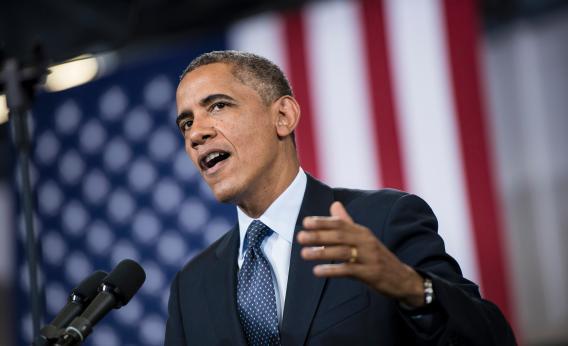The two big economic policy stories of the day are the president’s speech on his vision for long-term economic prosperity and the president’s decision about whom he’ll nominate to replace Ben Bernanke to run the Federal Reserve. Predictably—but very oddly—Obama didn’t mention this decision at all in his speech.
Which is strange because it’s not as if it’s irrelevant. Obama clearly indicated an aspiration to accelerate the pace of job growth and talked about “new rules on big banks.” Lots of elements of the government outside the Federal Reserve play a role in regulating banks, but the Fed is a major bank regulator. Lots of things that happen in public policy are relevant to job creation, but the Federal Reserve is the lead agency in macroeconomic stabilization. I don’t expect politicians to dwell on monetary policy issues on a day-to-day basis, since on a day-to-day basis they’re outside of their hands. But Elizabeth Duke’s resignation from the Board of Governors creates a vacancy Obama needs to fill. Ben Bernanke is going to need to be replaced. And there’s talk that Sarah Bloom Raskin is going to move to the Treasury Department as deputy secretary, which would create another vacancy on the board. So there’s a real question here worthy of presidential attention.
The official story as to why you don’t hear about monetary policy from the president is that the Federal Reserve is supposed to be independent.
But no matter how strongly you believe in central bank independence, I don’t think this really adds up. The Supreme Court is very much independent of the White House or of Congress. But that doesn’t mean elected officials don’t talk about Supreme Court cases or say things about their approach to judicial issues. On the contrary, it’s pretty broadly recognized that the ability to appoint Supreme Court justices and shape the trajectory of the judicial branch is one of the president’s most important powers. The Fed chairman is one of the most powerful people on the planet, and Obama’s going to nominate someone to fill the role. When he’s giving big-picture talks about his economic philosophy, he ought to say something about that.
